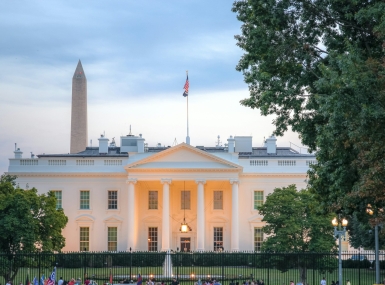FCC withdraws proposed rulemaking to ban bulk-billing arrangements
Author

Seamus Dowdall

Emma Conover
Upcoming Events
Related News

Key Takeaways
On January 27, Chairman Brendan Carr of the Federal Communications Commission (FCC) announced that the FCC would be withdrawing consideration of a proposed rulemaking that sought to build upon the FCC’s 2022 rule titled Improving Competitive Broadband Access to Multiple Tenant Environments. The proposed rulemaking, which was circulated internally at the FCC in 2024 but had yet to be brought publicly to a comment period, proposed to ban arrangements by managed service providers and owners or operators of multiple tenant environments to offer bulk cable and internet services to all residents.
What is bulk billing?
Bulk-billing arrangements are contractual arrangements that are brokered between an internet service provider and an owner or operator, homeowner association or condominium association of a multiple tenant environment (MTE). A provider and MTE representative will negotiate for services and prices of cable and/or internet services on behalf of all tenants, and then tenants are charged for the services through a line-item addition of their rental payments, association fees, or other co-located billing arrangement to a resident’s fees and charges for residence.
The arrangements often include discounted pricing for residents, and benefits such as the multi-model delivery of service through in-unit and out-unit internet connectivity throughout the premises, known as managed wi-fi. Studies suggest that bulk billing arrangements can offer prices that are 50-60 percent lower compared to average community retail rates for similar services. As a condition of bulk-billing agreements, MTE representatives must oblige exclusivity in bulk billing and marketing arrangements with the provider to which they have entered a contractual arrangement.
How does bulk billing impact counties?
Counties heard significant feedback from constituents who advocated for maintaining bulk-billing arrangements, and counties support the FCC’s actions to withdraw the proposed rulemaking at this time while encouraging the FCC to ensure that broadband connectivity arrangements will maximally benefit tenants seeking affordable and reliable internet access.
Counties urge the FCC to ensure that transparency in the arrangements brokered for bulk-billing services are made accessible to residents who would like to learn more about the benefits of service, pricing, terms and conditions, and other information that would be similarly available to a consumer subscribing to mass-market retail broadband or cable services.
Transparency measures for service providers could include, but are not limited to:
- Broadband speeds offered to tenants
- The preferred rate for offered services
- Technology utilized to deliver service
- Terms and conditions within the contract for services
Counties further urge the ability for bulk-billing arrangements allow the ability of tenants to access to ad hoc broadband affordability programs, such as the Universal Service Fund’s Lifeline Program or the currently unfunded Affordable Connectivity Program.
Counties support the FCC’s decision to not ban billing arrangements to ensure that affordable housing units continue to receive high speed service and broadband buildout. NACo will continue to monitor federal actions related to access to broadband connectivity in MTEs.
Related News

House committee passes local broadband permitting preemption bills
The American Broadband Deployment Act of 2025 would enact new restrictions on a variety of state and local land use and zoning authorities pertaining to the deployment of telecommunications infrastructure.

White House signs Executive Order on state AI lawmaking
President Trump signed an Executive Order (EO) aimed at mobilizing federal agencies to challenge existing state laws on artificial intelligence.
